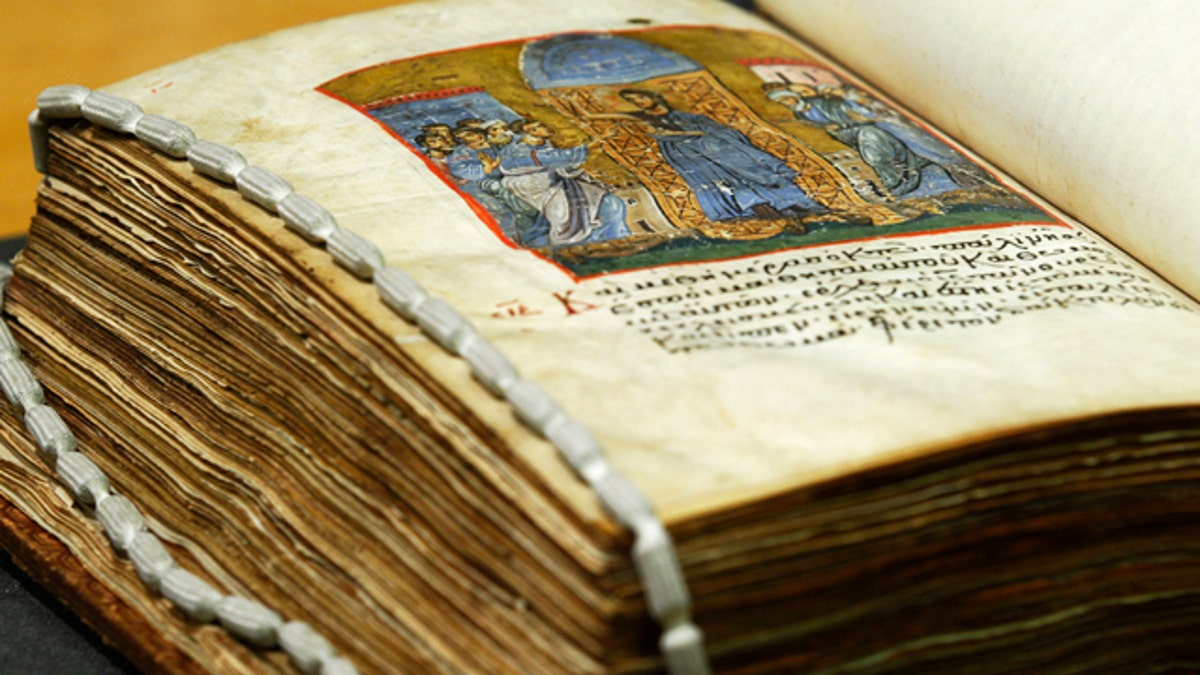
A late 12th century illuminated gospels manuscript in Greek, which has been digitized, is seen at the British Library in London, Friday, Sept. 24, 2010. British Library has digitized over a quarter of its Greek manuscripts (284 volumes) for the first time and made them freely available online. (AP Photo/Sang Tan)
LONDON – One of the world's most important caches of Greek manuscripts is going online, part of a growing number of ancient documents to hit the Web in recent years.
The British Library said Monday that it was making more than a quarter of its 1,000 volume-strong collection of handwritten Greek texts available online free of charge, something curators there hope will be a boon to historians, biblical scholars and students of classical Greece alike.
Although the manuscripts -- highlights of which include a famous collection of Aesopic fables discovered on Mount Athos in 1842 -- have long been available to scholars who made the trip to The British Library's reading rooms, curator Scot McKendrick said their posting to the web was opening antiquity to the entire world.
McKendrick said that London could be an expensive place to spend time poring over the Greek texts' tiny, faded script or picking through hundreds of pages of parchment.
"Not every scholar can afford to come here weeks and months on end," he said. The big attraction of browsing the texts online "is the ability to do it at your own desk whenever you wish to do it -- and do it for free as well."
Although millions of books have been made available online in recent years -- notably through Google Books' mass scanning program -- ancient texts have taken much longer to emerge from the archives.
They don't suffer from the copyright issues complicating efforts to post contemporary works to the Web, but their fragility makes them tough to handle. They have to be carefully cracked open and photographed one page at a time, a process the British Library said typically costs about 1 pound ($1.50) per page.
The library has moved aggressively to put large swathes of its collection online, from 19th-century newspapers to the jewels of its collection -- The Lindisfarne Gospels, a selection of Leonardo da Vinci's sketches and the Codex Sinaiticus, the oldest surviving complete copy of the Christian Bible.
The library's Greek manuscript project was funded by the The Stavros Niarchos Foundation, which supports Greek-related initiatives in arts and culture.
Another batch of about 250 documents are due to be published online in 2012.
